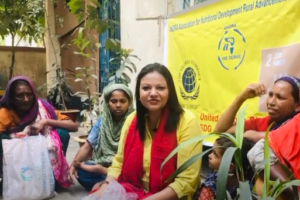The 75th United Nations General Assembly has adopted its resolution on the human rights situation of the Rohingya and other minority groups in Myanmar, with nine countries changing their stance in favour of the resolution.
The nine countries are Cameroon, Equatorial Guinea, Kenya, Lesotho, Mozambique, Namibia, Tanzania, Palau and the Solomon Islands. They had voted abstention in 2019.
The UNGA plenary adopted the resolution on Dec 31, 2020 by a record vote of 130 in favour to nine against, with 25 abstentions.
The countries that voted against the resolution are Belarus, Cambodia, China, Laos, Myanmar, the Philippines, Russia, Vietnam and Zimbabwe.
The adoption of the resolution had been delayed over budgetary questions about the Myanmar investigation mechanism and other issues, tweeted Laetitia van den Assum, an independent diplomatic expert based in The Hague who previously worked for an advisory committee on the situation in Myanmar’s Rakhine.
In the resolution, the 130 countries expressed “grave concern at reports of serious rights violations” by the military and security forces against the Rohingya, notably in Kachin, Rakhine, southern Chin and Shan States.
Fleeing Rohingyas watch from Bangladesh as their houses at Maungdaw in Rakhine State are set on fire allegedly by the Myanmar Army and other security forces. This photo of the burning villages was taken on Sept 11, 2017. Photo: Mostafigur RahmanFleeing Rohingyas watch from Bangladesh as their houses at Maungdaw in Rakhine State are set on fire allegedly by the Myanmar Army and other security forces. This photo of the burning villages was taken on Sept 11, 2017. Photo: Mostafigur RahmanIt noted that the rights violation led to the forced displacement of more than 860,000 Rohingya and other minorities to Bangladesh.
In an explanation of position after the vote, Myanmar’s representative said that his country and its democratically elected government have “taken strides in addressing human rights”, according to a UN statement.
The representative said his delegation voted against the draft resolution because it is an “exploitation of human rights initiatives for political purposes, which should be avoided.”
“Its provisions intrude into Myanmar’s jurisdiction.”
The Myanmar government “do not condone violations, with 67 percent of cases having been investigated,” said the representative.
“The winning party in recent elections has reached out to others in forming a new government and is willing to engage in meaningful dialogue with related ethnic groups,” he said.
His delegation “categorically rejects the resolution and Myanmar is not bound by it”.






















